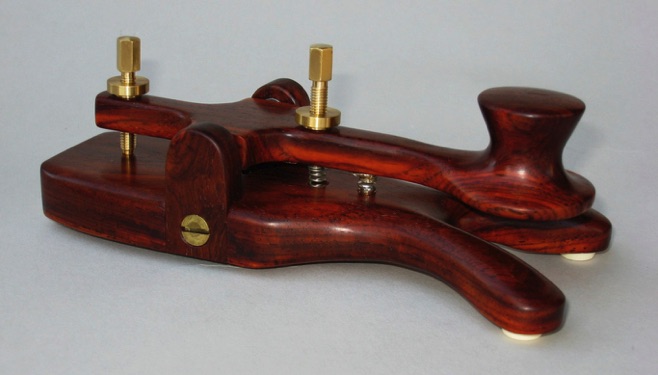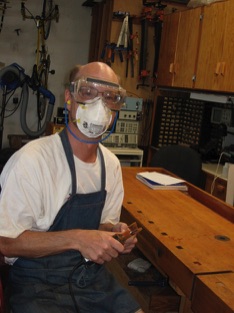
A Wooden Morse Key
Morse keys are pretty simple machines, and you can make them from just about anything. This one is sculpted from Cocobolo, an African hardwood. It’s extremely hard and brittle, like Ebony, and is more like working aluminum than wood in some ways.
Like the keyer project, I started with sketches, then made a full-sized clay mockup. I like the old “Navy style” knobs, and this one is carved to fit me; it’s a little asymmetrical. The block of Cocobolo was small and there was barely enough material. I had to resaw it into bookmatched parts to make the base. Brass fittings were turned on my trusty South Bend lathe, and screw into holes tapped in the very hard wood. There are sealed ball bearings inserted in the pillow blocks and the shaft is 1/8” drill rod. Contacts were taken from an old power relay, and are a hard silver alloy. The return spring is interchangeable should a different force ever be needed. Finish is Tung oil and wax.
By the way, the resins in Cocobolo are quite toxic. If you make fine dust, a dust mask is mandatory. Some people react violently to it. A further surprise was how badly it irritated my eyes. Fine dust from my Dremel tool felt like getting a big gob of soap in the eye. I staggered outside for a quick rinse, and then put on chemistry goggles.
The key has a very pleasant feel to it, thanks to the polished wood. It actually makes a slightly hollow, ringing sound. No wonder they sometimes use Cocobolo on instruments like Marimbas.
